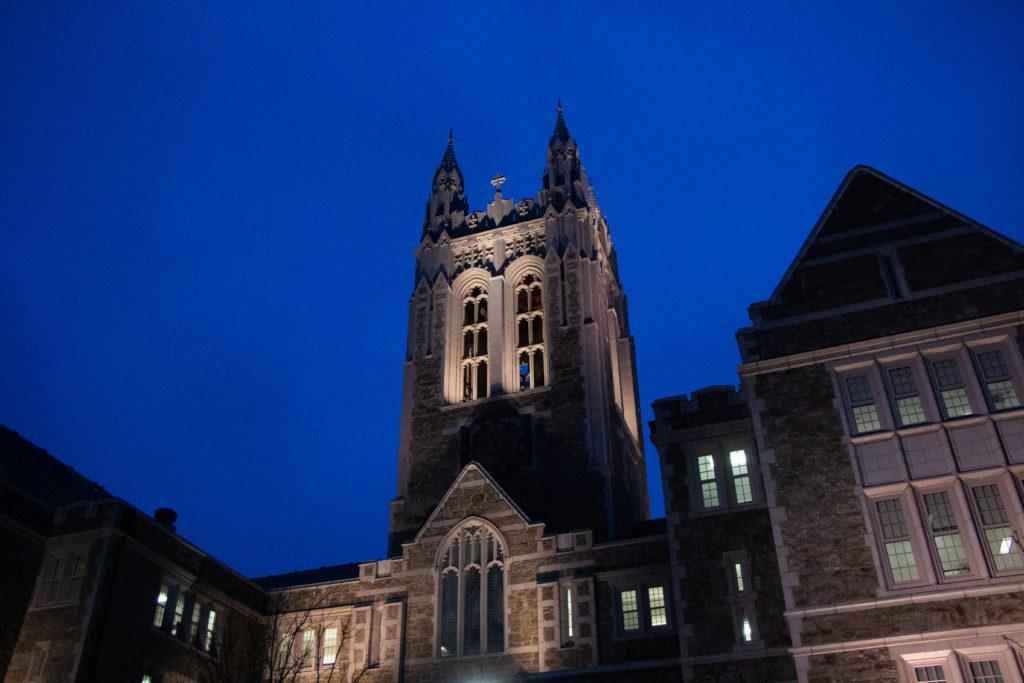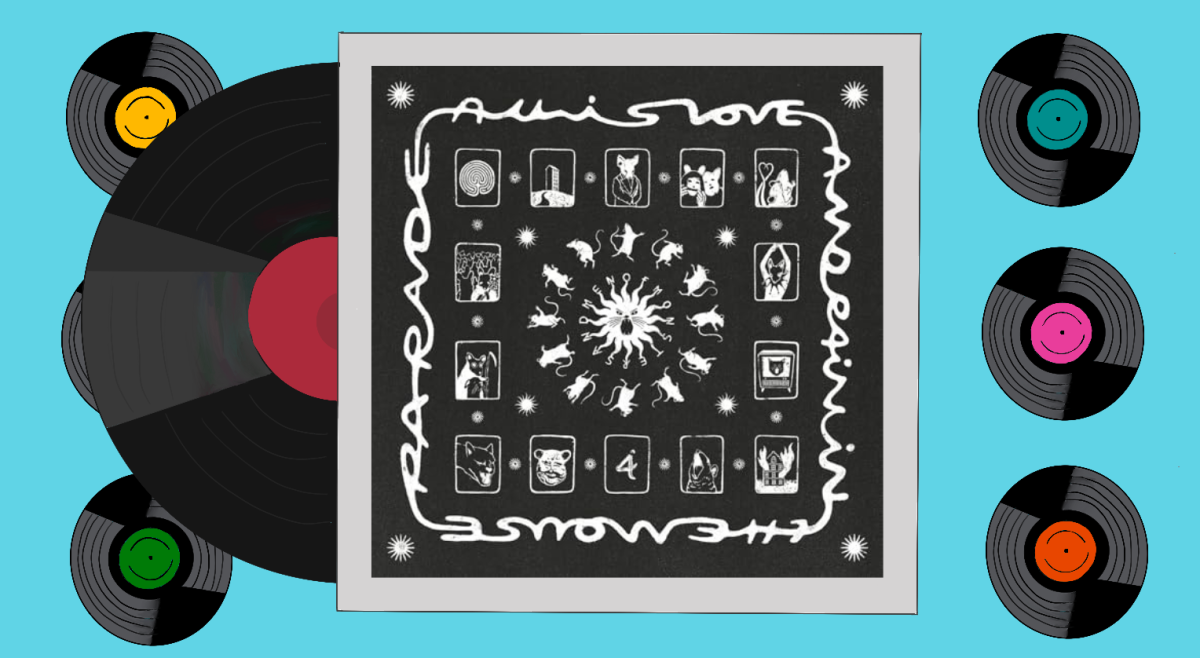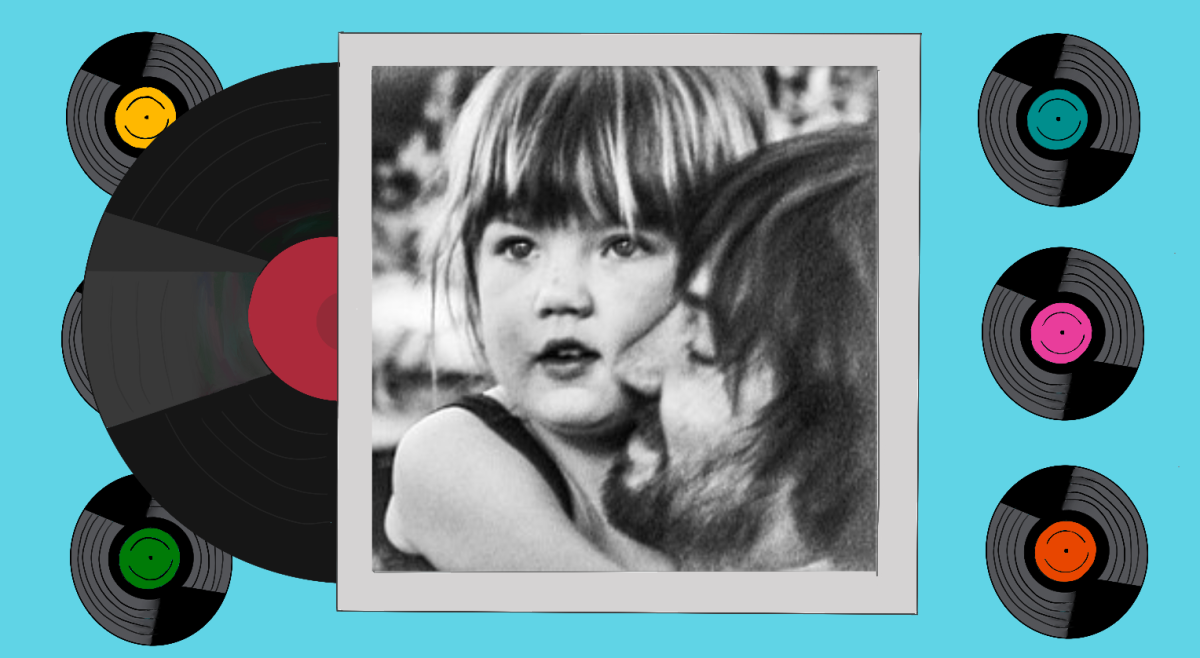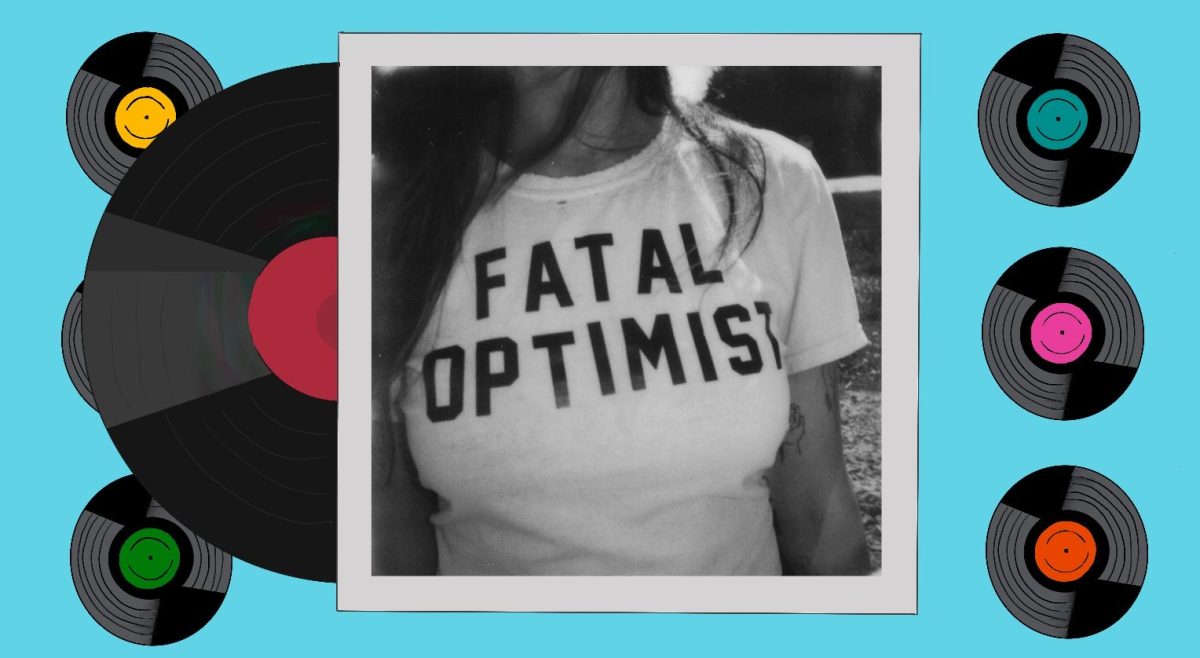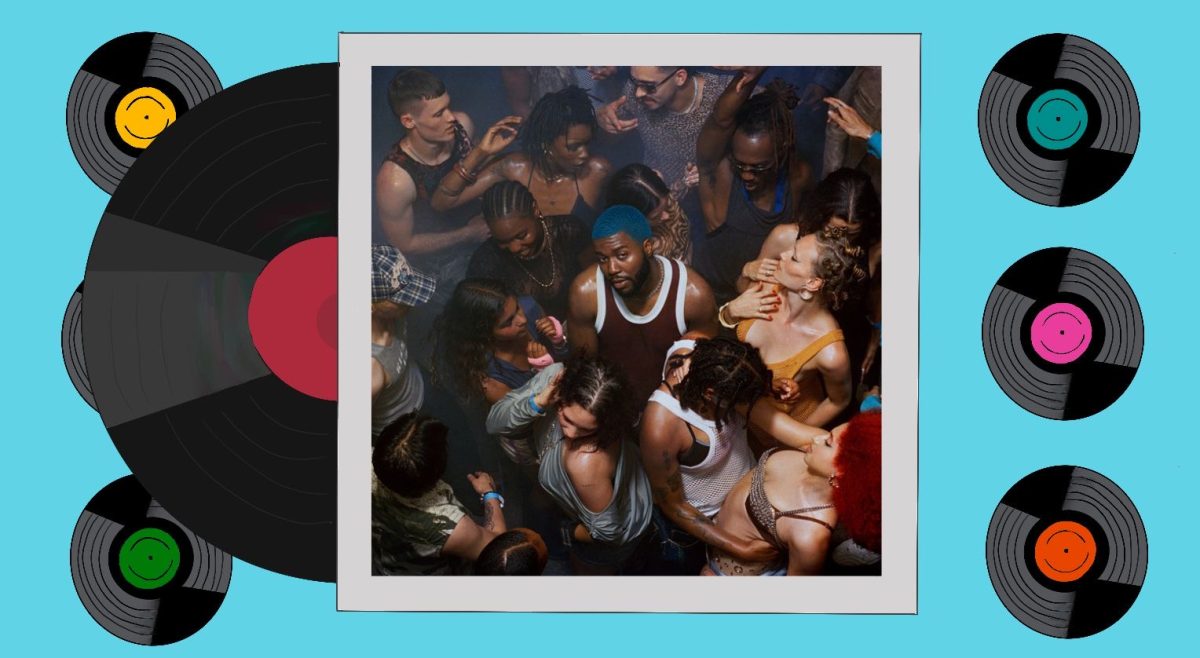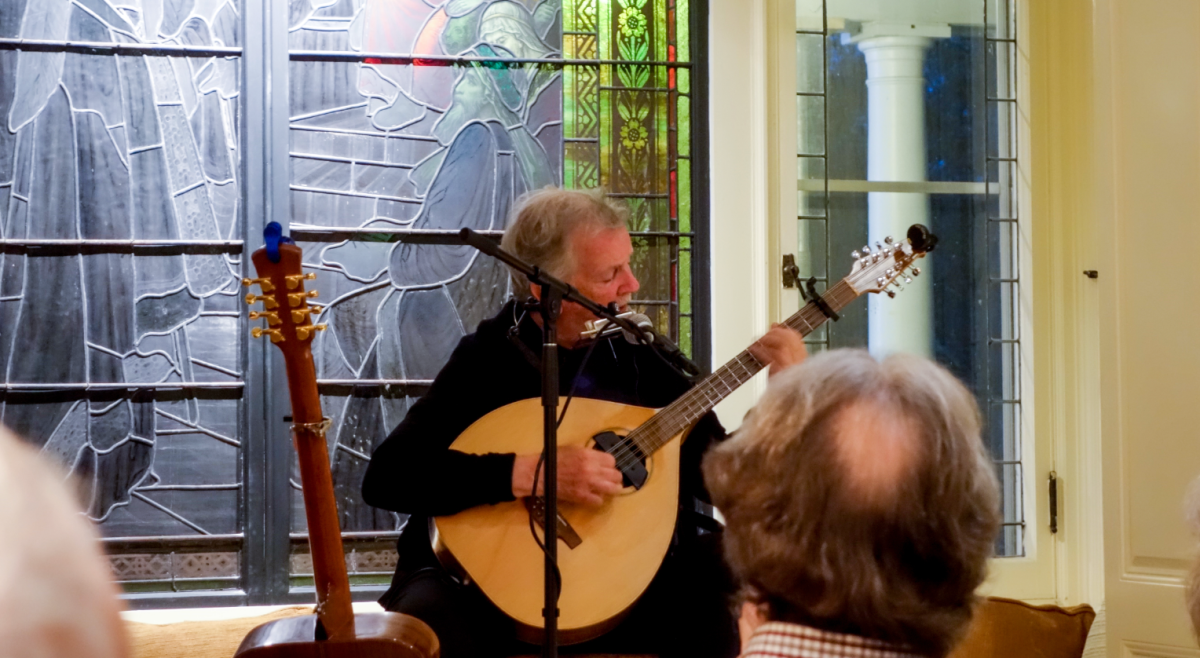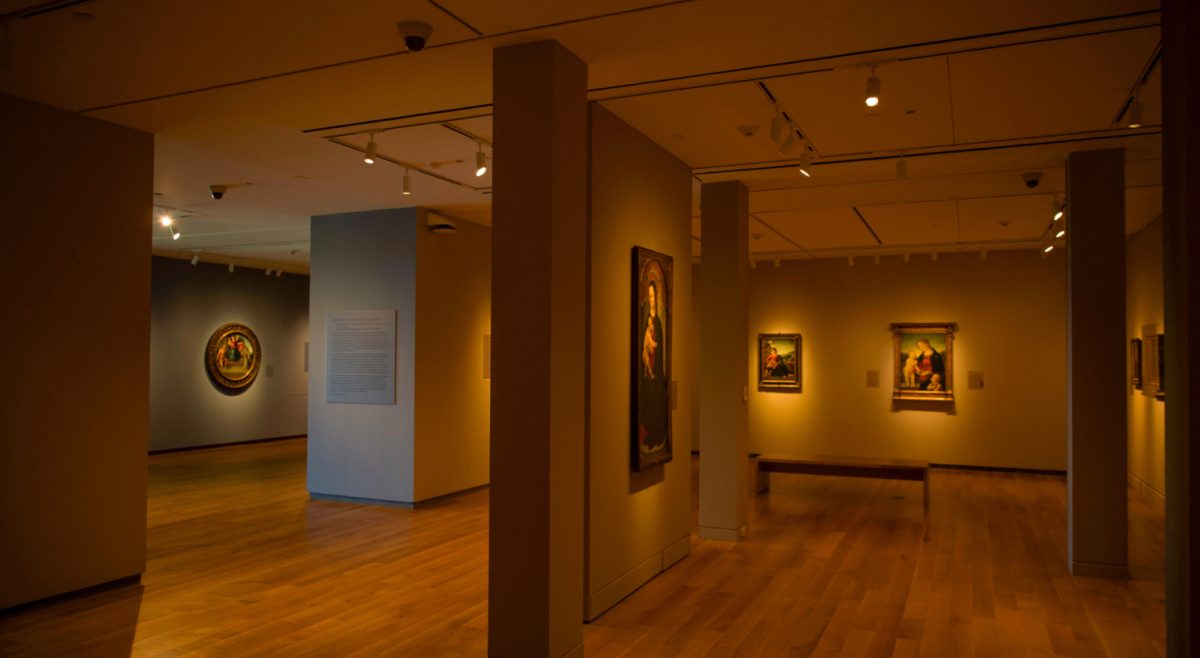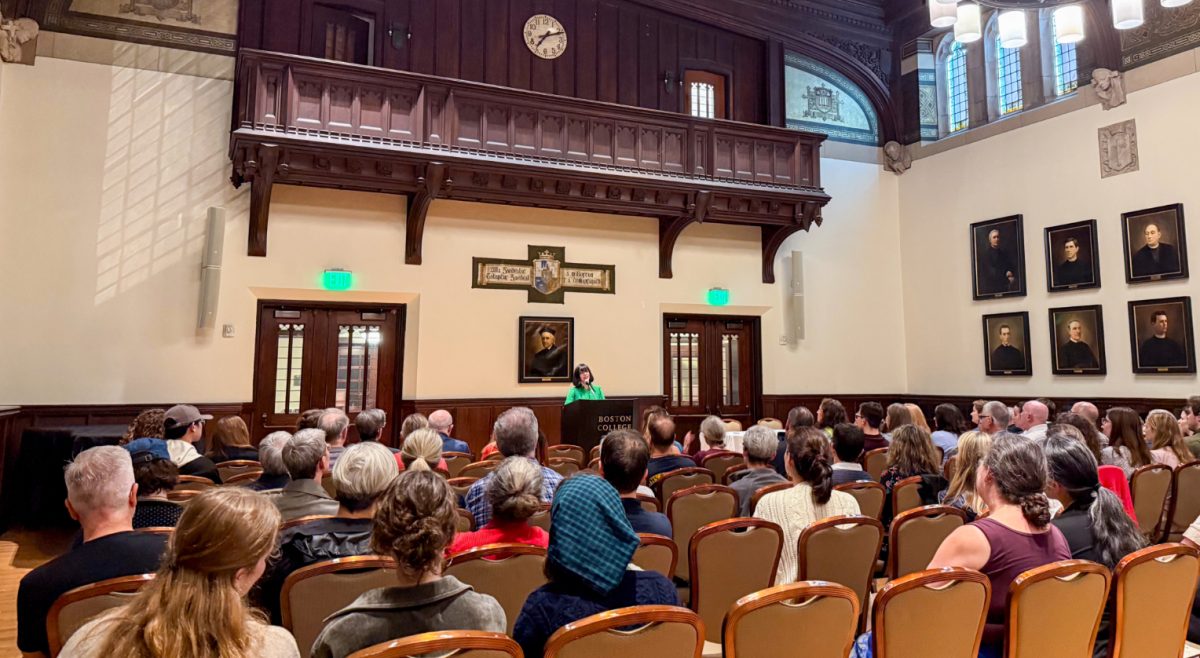Jazz immediately evokes scenes of comfy chairs in hazy cocktail lounges, of socialites making conversation over martinis before James Bond even graced the television screen. For many, jazz is a thing of the past. In Gasson 100 on Monday night, however, students and faculty alike were treated to a mesmerizing and, perhaps more surprisingly, fiercely relevant performance by the Craig Harris Jazz Quartet.
Craig Harris is a virtuoso trombonist who has helped push the sound of jazz into the 21st century. He has worked with progressive jazz legends like Sun Ra, Cecil Taylor, and even the Roots. Recently, Harris has been expanding his repertoire by venturing into performance art and multimedia, showcasing not only his musical ability but also his astute social commentary.
Harris immediately jumped into the performance, playing an otherworldly, minimal trombone melody as keyboardist Pete Drungle reached to his laptop and started an ambient, atmospheric noise track. Together, the trombone and ambient track produced abrasive, stirring waves of noise that brought to mind a manufacturing plant, not a cocktail lounge.
For those with prior knowledge of Harris’ work, the influence of Afrofuturism was obvious. Afrofuturism is an artistic and literary movement that contemplates the intersection of African Diaspora culture with technological advancements. Harris’s music incorporates technology and immersive, otherworldly sonic landscapes that continue to investigate the main aims of the movement.
While Harris’s use of technology was fascinating, it was his band’s passion that charmed the audience and kept them glued to their seats. Like all great musicians, the performance seemed to be coming straight from the soul, especially in the case of bassist Calvin Jones. As his brow furrowed and teeth clenched, the pace quickened and the music turned violent and aggressive. Jones had a slight grin and closed eyes as the music dialed back into a smooth, effortless, and gentle tune.
Undoubtedly the most emotionally stirring part of the performance came 20 minutes in from drummer Tony Lewis when he embarked on a drum solo. No one knew what the drums had done to make Lewis so angry and, after seeing Lewis pummel them over and over, were content to leave it that way.
Perhaps these percussive aerobics should have foreshadowed the final portion of the performance, when Harris played selections from his recent multimedia work, Brown Butterfly. The project mirrors the charisma and movement of Muhammad Ali through music, dance, and video. While the audience was only treated to the musical component, the driving drum beat was enough to picture Ali dancing in the ring, tormenting his opponent with each thunderous roar of the crowd and crash of a cymbal. Harris played triumphantly, conjuring the image of Ali victorious and declaring “I am the greatest.”
Harris and Co. certainly provided a gripping performance for all in attendance, yet perhaps the most poignant moment came when Harris broke his determined snarl and praised the power of music by repeating the same chorus with slight alterations. “We just wanna play that surreal, yet so real music,” he said. “Yes the world could really use it.” Perfectly summing up a performance that was otherworldly yet still intensely relevant to the current social climate, Harris hit the nail on the head and left the audience empowered to use music to shape a better future.
Featured Image by Celine Lim / Photo Editor

